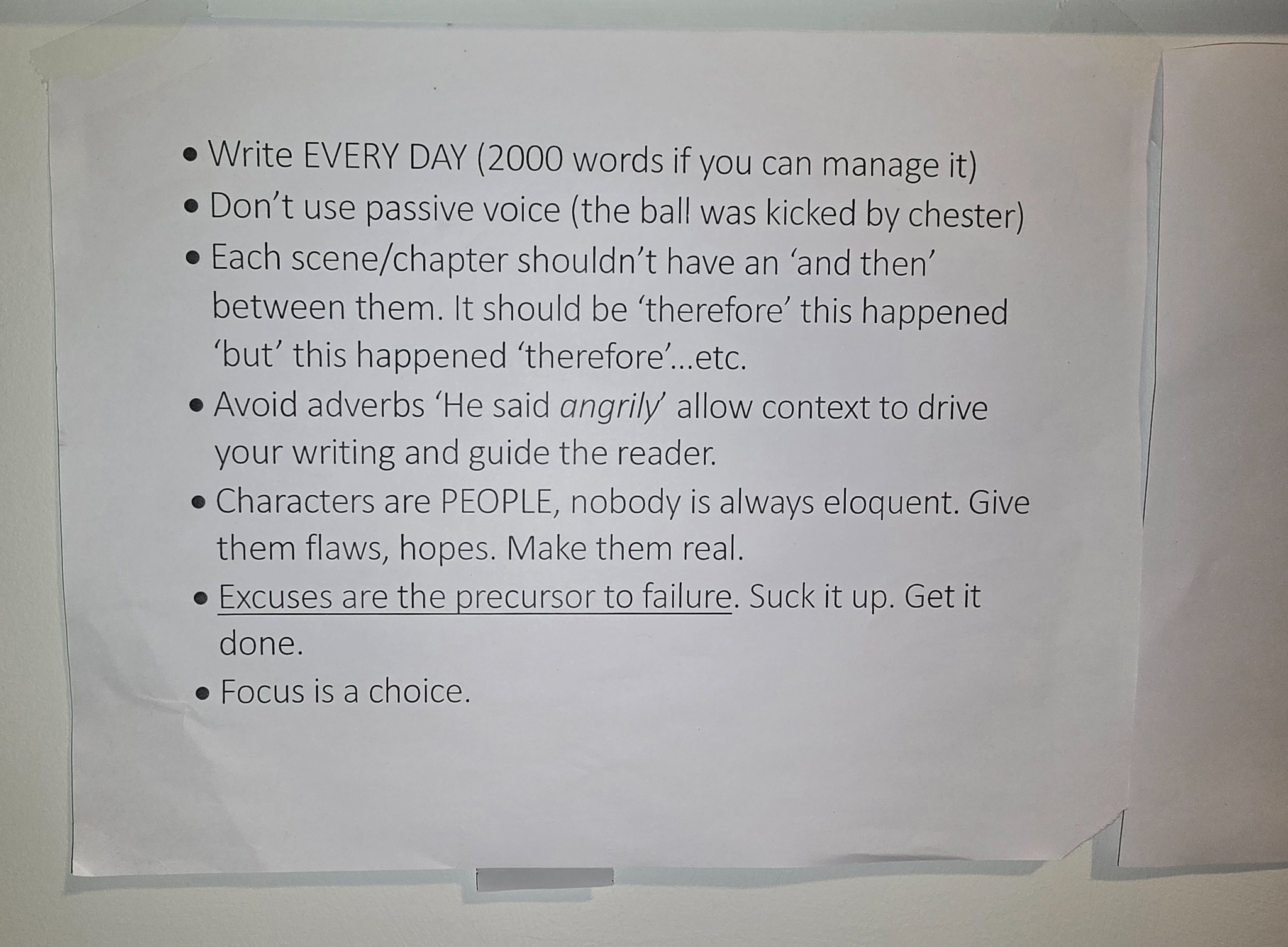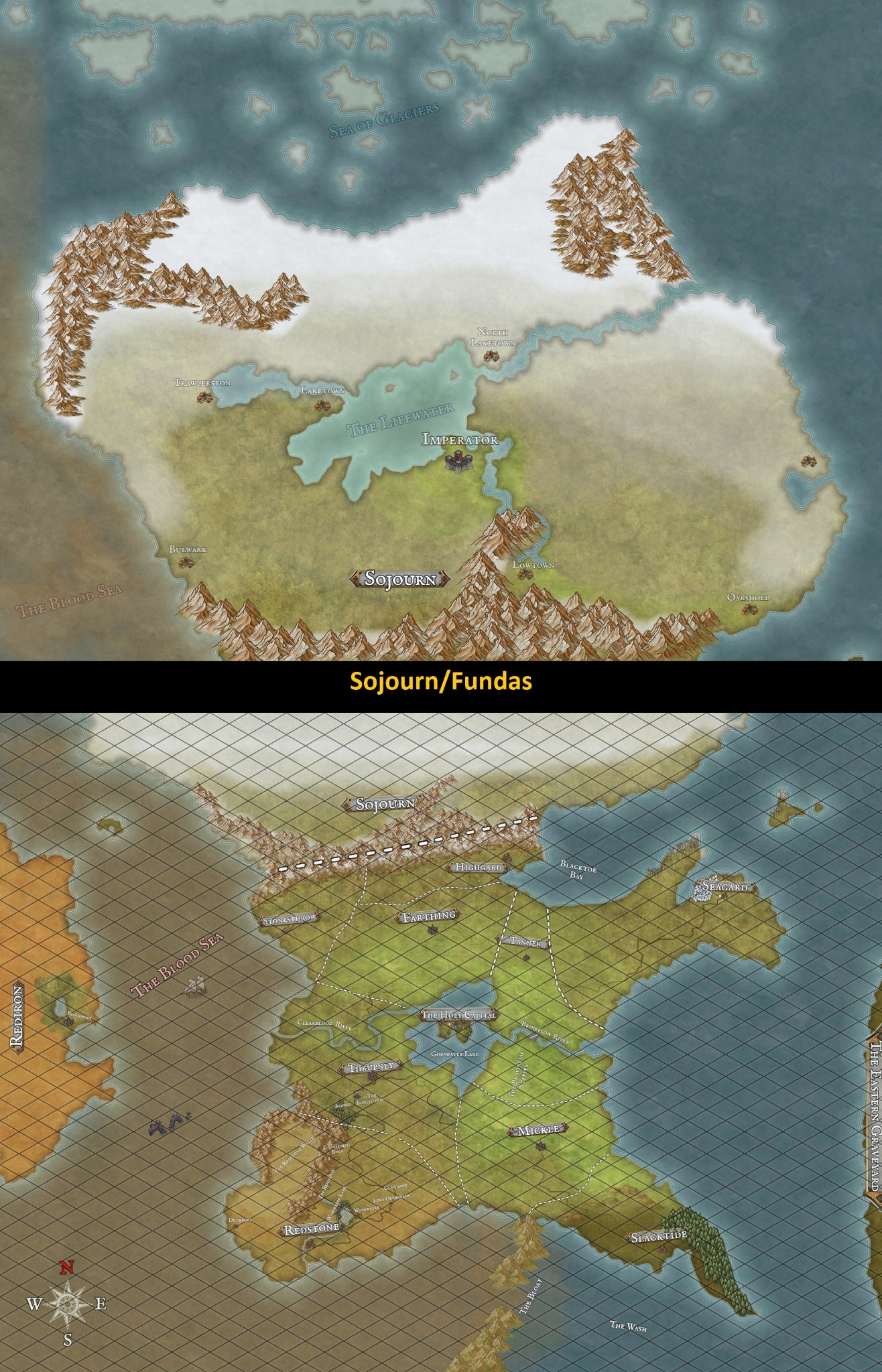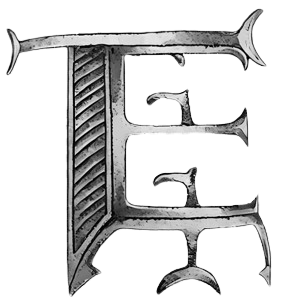
Writing a Fantasy Novel with ADHD: Tips for Focus, Motivation, and Writing Realistic Characters
Written by: Matthew Tegge ©
Welcome back!
Writing a fantasy novel sounds like an epic adventure, right? It is a genre as vast and overdone as any, but somehow still enchanting enough to keep us all hungry for more. But try writing it while your brain jumps from one idea to the next faster than you can track. That’s what the process often looks like for ADHD authors. The good news is that these struggles to hold one idea down can spark creativity and open new paths you may not have originally taken. In this post, I’ll share what it’s like navigating both the world of fantasy and ADHD and doing my best to make it a symbiotic marriage. We’ll talk about finding focus through routine, the balance of hyperfocus and burnout, creating real complex characters, and using distraction as a productive tool in world building.
Finding Focus Through Routine
Take a look below at this old, printed sheet I’ve had at my computer for about a year now. This sheet is a fantastic tool and reminder that I use during heavy writing sessions. It keeps me focused on my goals, reminds me of things to look out for in my writing, and helps to keep me accountable.
The thing about ADHD is, it’s really hard to stay on something long term. You go in fits, and bursts, and sometimes you get the gift and curse of hyperfocus. You can pump out 5,000-10,000 words in a session and wonder why that isn’t the norm instead of the exception. Could you imagine if it was the norm? You’d have no life, no friends or family near and dear to you. You’d have your word processor and a 500,000-word Homeresque epic. (You’d also have no book deals because no agent or publisher is going to read that monstrosity.) What happens then is that over time you fizzle out, you either burn out from repeated bouts of hyperfocus, or you simply start to doubt your ability to finish anything at all. Trust me, I’ve been there. You look at your creation less and less like something worthy of being finished and find excuses to look elsewhere until one day you’ve forgotten you were obsessed with it to begin with.
So, what ideas does this sheet drive home? Well, a lot of it will be repeat from my last post but some things bear repeating.

Motivation
Motivation is a myth, just as inspiration is a fairy. They are creatures of the realms we task ourselves to create—and need to be treated with just as much scrutiny. If you want to do something worthwhile (and this goes beyond writing) you need to simply do it. Set the time aside, set a goal, and go for it! The word itself sounds so positive and uplifting, and I think that’s the way it traps us. We all believe it to be a productive word but consider the implications of it. Being motivated is a state that befalls us. It isn't a choice. We have this view that, once we have it, everything will get better.
‘As soon as I get the motivation, I’m going to clean the house’
‘Once I’ve got the motivation I’m going to learn to play the guitar.’
‘I’ve just got to get motivated, then I can finish this book!’
But that's just passing the buck.
You’re foregoing personal accountability and placing it on the shoulders of something that, frankly, doesn’t exist. But it doesn’t have to limit you. Don’t wait for motivation, instead set goals and accountabilities for yourself, and follow through.
This leads me nicely to the next point.
Accountability
Accountability is so important, even if (or especially if) it is only to yourself. Goals cease to have meaning when we set them and forget them like a Ronco rotisserie oven. Of course we shouldn't hate ourselves for every misstep, we have to understand that we aren’t superhuman. Whatever dreams we hold ourselves to, we are people with lives and loved ones that come first.
So, sit down every day and write—whether it’s 100 words or a deluge of 5,000 doesn’t matter, just write. Be proud of yourself! You sat down, and you did it. Be proud you set aside the time, you honored it, and even if that day wasn’t fruitful, I guarantee the consistent effort will be.
Accountability isn’t about being mad at yourself. It’s about understanding that if you never take any responsibility for your dreams, they’ll never come true. There's something I’ve told my children—and gone so far as to burn it into a plaque on the wall:
Dreams don’t come true—they’re forged.
That means they take work; you’re going to sweat and you’re probably going to feel some pain. But if you’re dreaming about something, it’s probably worth the effort.
If you dream about writing fiction, fantasy, or anything in between there's one thread that ties it all together. Believable and compelling characters. We've talked about how we should start writing, so lets switch gears and talk about who we should be writing.
Creating ‘Real’ People
When writing characters, we can’t get too wrapped up in eloquence, often it’s the contrary where real humanity lives. How many truly eloquent people have you ever met? Odds are you can count them on one hand, if any fingers get raised at all. So where is the truth in your dialogue? Where is the heart and the feeling that these people really live in the world you’ve made for them? Are their emotions true and consistent with the plot line?
I recently had my fiancé read one of my chapters where these downtrodden soldiers have been languishing for weeks, wounded in a forest and trapped by an enemy army and a horrible creature. She pointed out to me, very aptly, that these soldiers are entirely too positive, to the point that it may break you out of the narrative. People are laughing and toasting at the simplest joke and seem unrealistically well adjusted. At the time of writing, I thought to myself, perhaps this is just a coping mechanism?
But that still wouldn't make sense.
Regardless of how fantastical your story gets; people are still people. Sentient beings will have emotions tied to their actions or reactions. One problem authors face is that we won’t always be there to explain our book to the person reading it, so we need to get it right. This means the characters NEED to sound and feel authentic, having real reactions to their circumstances is CRUCIAL to them being believable. Has a character experienced something traumatic? If so, what happens when a person experiences trauma? Will they have PTSD? Will they have some other emotional regulation issue? These deep and human things may get passed over as you’re trying to write a hero, or a group of heroes, but heroic or not, they are all still alive. No one goes unscathed from watching a loved one die in a horrible way or after losing a child. There will be remnants of the life they’ve lived to this point, even if you haven’t written about that in the story directly.
We are each of us a world, and in the process of writing characters you'll have to build two worlds from scratch. Building one is hard enough, staying on task for two? For anyone that’s a huge feat. For creatives with ADHD, that takes some tricks to accomplish.
We’ve discussed how to build realistic characters, so let’s talk about an unlikely tool that can help keep your creative momentum going—distraction.
Get distracted by this map, then read below to see how it connects to my point.

Using Distraction As a Productive Tool
This is an image of the world map I’ve started crafting for my fantasy series. It is in no way finished, and a bit weak for now, but I wanted to share the work in progress. As ADHD creatives we want to be distracted, and really to some degree I think everyone who writes has the urge. When you’re brain deep in the craft of creation, sometimes you want to look away, and that’s okay. There is a distinction to be made between distraction and a break, however. For ADHD creatives distraction can take hold very often. You check a text, find yourself on Instagram, fall down a Twitter/X rabbit hole, and end up doom-scrolling through Facebook. Suddenly you realize you’ve been sitting there for two hours, and you have nothing but a blinking cursor to show for it.
I'm sharing this map to show one of many ways in which you can use your distraction to your advantage. Use it to at least remain productive in your world building. I tend to get fixated on silly little tasks instead of tackling the larger task in front of me. The hack I try to utilize for myself is to get distracted by other quasi necessary tasks for my work in progress. At the very least, the map will come in handy later, it is the foundation for an understanding of my world I wouldn’t have had otherwise. Now it’s become something of a reference tool for me when figuring out distances travelled, or if a certain movement is plausible, etc.
Side Note:
Before writing this blog post I spent the better portion of my day trying to make an Excel spreadsheet for planning blog posts. I color coded, set up a number of formulas I’d never used before, and used Visual Basic programming for the first time to try and make up for a mistake and my subsequent laziness to fix it. (This ‘fix’ took nearly as much time as it would have to add the data manually but, I’ll be damned if I let excel beat me!)
Tools I use
Map
To make the map I used a site called Inkarnate. It’s a great resource for anyone trying to make a world map, or who just wants to play some D&D. I used the free version because I’m cheap, but the paid version is cheap too, so if you want to go nuts and make something cool, go for it.
Blog
I use Journoportfolio to write this blog, hence the URL. But as I mentioned in the post, I’ve started utilizing organizational tools like Excel. This is monumental for me, as before I started medication my only organizational tools were sticky notes, random sheets of paper, and my oh so porous brain.
Tape
Okay, I’m kidding here but you get the idea. I tape reminders for myself, and story information all over the place. You can’t forget something if it haunts every corner of your periphery.
Takeaway
I’m long winded, I know. But it all really boils down to a few things. We are in control of our own motivation in life, it isn’t a windfall. We can utilize our weaknesses in a way that, even if they aren’t fully mitigated, they can be useful. We’ve got to hold ourselves accountable if we’re going to make any true progress in stories or in life. The characters we write need to be as emotionally tangible as we are, with motivations and weaknesses that make sense.
Honestly, you can take my advice or you can leave it…but if nothing else?
Go write something.

0 Comments Add a Comment?